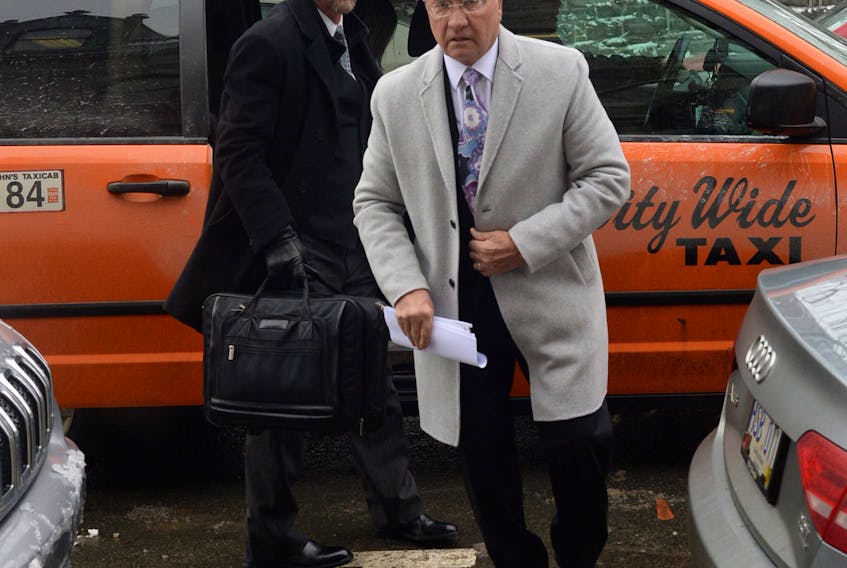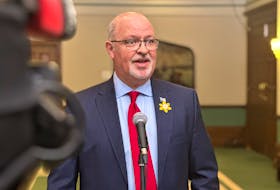Former premier and Galway developer Danny Williams was back in court on Tuesday as lawyers made their cases in his lawsuit against the City of St. John’s.
Jerome Kennedy, a lawyer with Roebothan McKay Marshall and a former Progressive Conservative cabinet minister, began the day laying out his case on behalf of Williams’ 10718 NFLD Inc.
Kennedy outlined his case alleging that the city has acted in bad faith with regard to the Galway development, hasn’t followed its own development regulations and tried to use arbitration boards to keep disputes out of the courts — all amounting to a communications breakdown.
“Williams does not trust the city. He’s $100 million in and they’re trying to screw him,” Kennedy told Justice Frances Knickle at Tuesday’s hearing at Newfoundland and Labrador Supreme Court.
The two primary issues at hand are the use of arbitration boards by the city, and the development agreements written by the city.
Ian Kelly, of Curtis Dawe Lawyers, represents the city in the case.
On the topic of the arbitration boards, Kelly said the use of such boards is common in other jurisdictions, such as Alberta.
Kelly said if a matter arises that needs resolution, the courts are part of the decision about whether the matter is best heard in front of the arbitration panel or in front of a judge.
Kennedy maintains the city emphasized the use of arbitration boards as a method of keeping issues out of court, thus restricting Williams’ access to justice.
Williams is also looking to have 16 development agreements declared invalid by the court, citing inconsistency in the city’s policy on development agreements.
Kennedy alleges that because development agreements have not been used consistently in other developments, the city’s use of the agreements — including the arbitration board requirement — is discriminatory.
Kennedy also takes issue with the development agreements being issued in August 2017, four years after construction on the development began.
Knickle will take the holidays to consider the matter, with a decision due in the new year.
Twitter: DavidMaherNL









